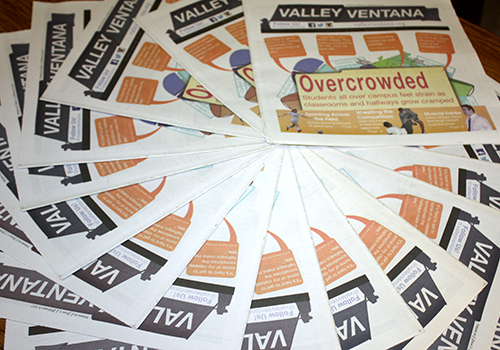Reporting truth, learning with professionals
New bill proposes to end administrative censorship of student newspapers

Ending administrative censorship allows for student publications to write about important topics that affect student life. The new bill protects student journalists’ First Amendment rights.
May 23, 2017
Texas legislators submitted a bill which protects student journalists from administrative censorship in public schools. The bill does not protect articles containing libel, obscenity or slander as in the case for professional publications. The bill also includes a retaliation clause protecting faculty who defend or refuse to infringe on free student speech from disciplinary action.
Voters should pass the New Voices bill because it gives student journalists a chance to use the skills they learned in the classroom in the same environment their professional counterparts work in.
El Paso senator José Rodríguez (D) submitted the New Voices bill to the Texas senate in March. So far the bill only protects student newspapers but is expected to expand to yearbooks and other student media.
The New Voices bill is essential for investigative reporting, as in the case of El Dorado High School. The student journalists there took on stories about a coach possessing drugs, false rape allegations and students getting sick at a blood drive, all stories which stirred up discussion in their school board. The board wanted the students to retract the stories but their adviser, Carlos Briano persisted and the school board agreed to let the students continue to maintain their reporting without prior review from administration.
Not all districts allow journalists to cover topics like the ones El Dorado High School covered, and would be censored by administration. The tough stories need to be covered because the tough stories affect high schoolers no matter what the administration censors.
This bill gives students a chance to apply the freedom of the press on their stories as well as the responsibilities that come with the freedom. It gives students the opportunity to use the skills they learned in class in their publications and get them ready for the responsibilities beyond.
Passing the bill lets student journalists write the tough stories and report the truth without the worry of censorship, which is the basis of the freedom of the press.















